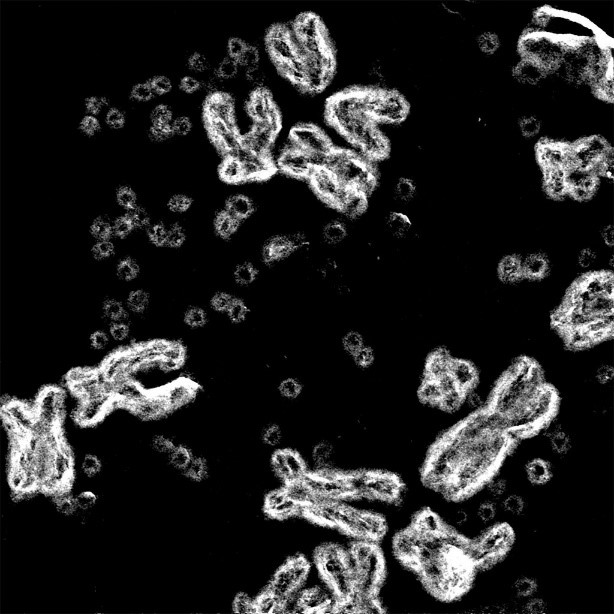DNA Rings Make Some Cancers More Aggressive
Scientists first noticed circles of DNA floating alongside the regular chromosomes inside some cells, but they didn’t know the purpose of this “extrachromosomal DNA.” Now, Former Damon Runyon Scholar Howard Chang, PhD, of Stanford University, and colleagues have found that these doughnut-shaped pieces of DNA increase the malignancy of cancer cells.

floating among larger
chromosomes inside a
human cell.
Their findings show that the extrachromosomal DNA found abundantly in human cancer cells dramatically amplifies mutant cancer-causing genes, making tumors more aggressive and resistant to therapy.
A combination of imaging and molecular analysis revealed that these pieces of DNA are wrapped around proteins in a ring shape, which makes it easier for the cell's machinery to access the genetic information encoded in the DNA. This easy accessibility allows tumor cells to express cancer-causing oncogenes at high levels. Researchers also found that cancer cells may carry dozens or hundreds of copies of the same circle. They are investigating how to target extrachromosomal DNA with cancer drugs.
This research was published in Nature.
Read more in the New York Times.
